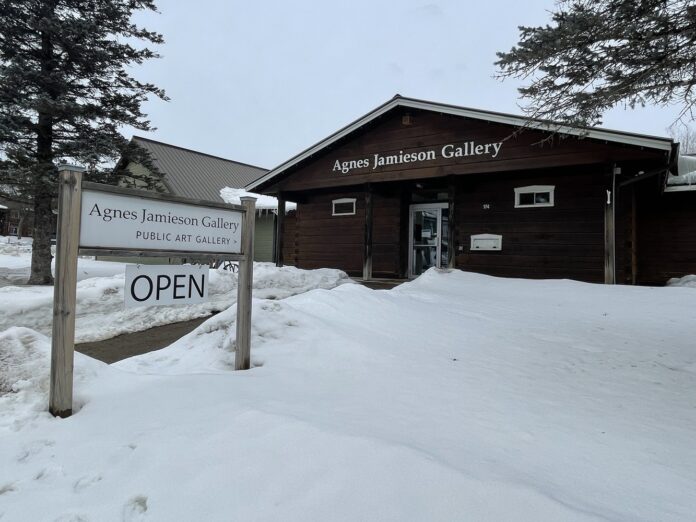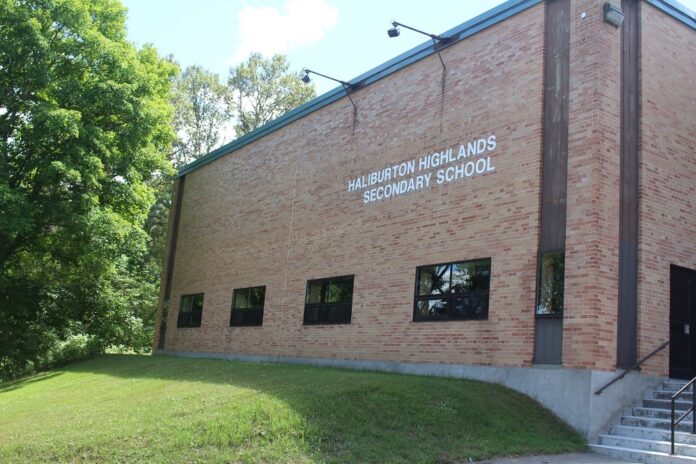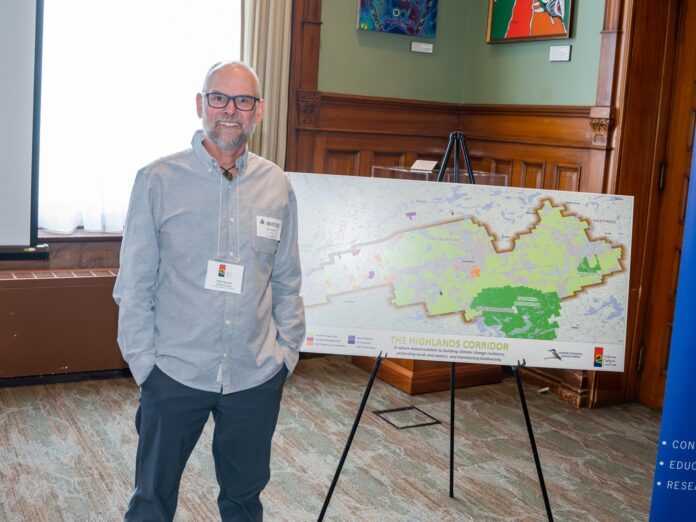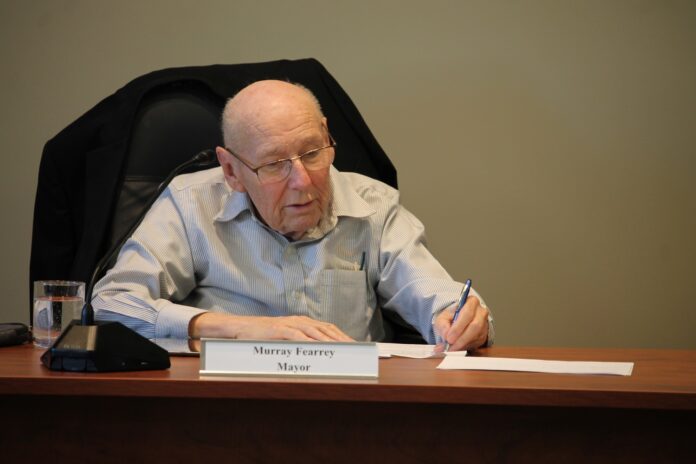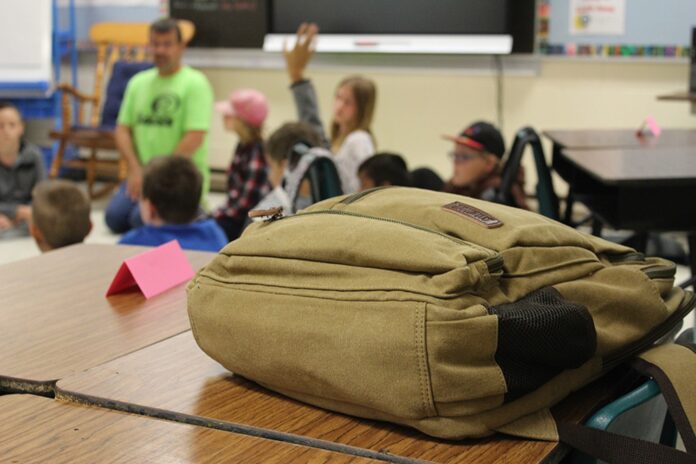The Haliburton County Huskies survived a late-game scare to complete a season sweep over the Lindsay Muskies on Family Day Monday, in what head coach Ryan Ramsay said was a ruthless display of the home side’s dominance.
The 4-3 scoreline at the final buzzer didn’t do justice to the blue and white’s performance according to the bench boss, who watched his team more than double their opponents in puck possession and shots.
“We had 51 shots, versus 19 against, and we had control of the puck for 25 minutes against their 12… it was a dominant performance,” Ramsay told The Highlander. “There’s a little bit of a rivalry with the Muskies – we beat them every year in the series, but I think this was our first sweep. Obviously, we’re happy with that.”
The win carried the Huskies to a 4-0 record in the ‘Battle of Hwy. 35’ this year. They also ran out 4-2 winners Dec. 17, won 7-2 Dec. 31, and snuck out a 1-0 decision Jan. 17.
Chase Del Colombo was the hero at S.G. Nesbitt Memorial Arena this week, recording three assists after being bumped up to the top line to replace co-captain Ty Petrou, who left with a minor injury in the first period.
“He played great. It just shows the depth we have. Del is a 17-year-old rookie who has worked his socks off all year, been in and out of the lineup – some games he’s barely played two minutes, but he’s bought into his role and is turning into a key player,” Ramsay said.
“It’s important that we have guys step up when our top players go down or aren’t having great nights.”
It was goalless through the first, with the Huskies running into a hot goaltender in Jason Tremblay, who turned away all 23 shots he faced.
The netminder had no answer two-and-a-half minutes into the middle frame when Del Colombo found Kieran Litterick, who made no mistake for his sixth goal of the year.
After Isaac Larmand and Cole Brooks took back-toback boarding and tripping minors, the Muskies took advantage of their five-on-three powerplay to tie the game at 4:47 – with Owen Dawson roofing one past Tyler Hodges.
The home side exploded in the third – Tai York re-established a lead at 7:53, assisted by Cameron Hankai and Del Colombo, with Nathan Poole adding another on the powerplay at 14:43 from Hankai and Deandres De Jesus. Luke Hampel netted the game-winner at 15:10, from Nolan Ling and Del Colombo.
With the clock counting down, forward Stefan Forgione took an almost costly four-minute double minor after pulling an opponent’s facemask off during a scuffle. It was his second penalty of a fiery five-minute spell, which also saw him sin-binned for cross-checking.
“It was a stupid play, but we addressed it. We drove home the message that we can’t be doing that stuff this late in the season,” Ramsay said.
Huskies 7-3 Burlington
The Huskies completed a Valentine’s Day massacre on the road Feb. 14, scoring seven in a one-sided win over the Burlington Cougars.
Chase Lefebvre, Petrou, York, Poole, Forgione, Larmand, and Noah Lodoen scored. Hodges earned a 37-save victory.
The Huskies have three games at home over the next seven days, hosting the Markham Royals Feb. 22 (4 p.m.), the Stouffville Spirit Feb. 23 (2 p.m.), and the rescheduled tilt with the North York Rangers Feb. 26 (4:30 p.m.) That match-up was supposed to take place Saturday but was cancelled due to the weekend snowstorm.
With just five games of the regular season remaining, the Huskies are third in the OJHL East Conference, two points back of the Toronto Junior Canadiens in second.
With playoffs around the corner, the Huskies will likely face one of the St. Michael’s Buzzers, Cobourg Cougars, or Pickering Panthers in the first round.
“Everyone has their input on who they think is the better team for us to be drawn against – at the end of the day, we just have to play our game and then it shouldn’t matter who we get,” Ramsay said, noting he hopes to have forwards Declan Bowmaster and Alex Bradshaw, who have missed the past couple weeks through injury, back for a postseason run.




